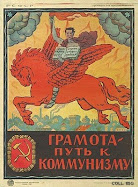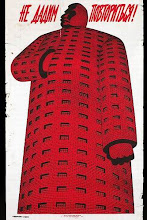 Over one year ago, the Bureau of Justice Statistics reported that over 2.3 million individuals were incarcerated in jails and prisons in the United States. Add to that another five million or so under probation or parole, and pretty soon, we're talking about a significant slice of humanity. Thanks to draconian sentencing laws passed over the last couple of decades, the number increases every year, regardless of a steady decline in the crime rate (both property and violent crime).
Over one year ago, the Bureau of Justice Statistics reported that over 2.3 million individuals were incarcerated in jails and prisons in the United States. Add to that another five million or so under probation or parole, and pretty soon, we're talking about a significant slice of humanity. Thanks to draconian sentencing laws passed over the last couple of decades, the number increases every year, regardless of a steady decline in the crime rate (both property and violent crime). Before delving further into how we got to the place where about 2.5% of all people in America are under some form of penal supervision, allow me to offer an overview the blog. The name has been rattling around my head for a while, a placeholder for otherwise disconnected thoughts spread across the frozen tundra of my mind. I started to read Solzhenitsyn's GULAG Archipelago a couple of weeks ago - many might say a ridiculous project given how far history has marched since his experiment in literary journalism first rocked the world - but in any event, the book and its author's recent death got me thinking again about this blog.
Before delving further into how we got to the place where about 2.5% of all people in America are under some form of penal supervision, allow me to offer an overview the blog. The name has been rattling around my head for a while, a placeholder for otherwise disconnected thoughts spread across the frozen tundra of my mind. I started to read Solzhenitsyn's GULAG Archipelago a couple of weeks ago - many might say a ridiculous project given how far history has marched since his experiment in literary journalism first rocked the world - but in any event, the book and its author's recent death got me thinking again about this blog.Through the Weblog Archipelago, I will seek to explore the legacy of the cold war - particularly on U.S. domestic affairs. These topics are subject to change, but I am interested in exploring: the overreaching in U.S. foreign policy that has been unleashed since the counterbalance offered by the Soviet Union evaporated in 1991; the parallels - or lack thereof - between mass incarceration in the USA and the former USSR; how it is that we did not learn the lessons of the ineffectiveness - not to mention illegality - of torture from direct experience during the previous ideological struggle; whether the U.S. led military expedition in Afghanistan will fair better than the Soviet adventure in that part of Central Asia a quarter of a century ago; how low prices for fossil fuels in the late 1980's simultaneously left the USSR in a lurch and set back investments in efficiency in the USA - accelerating the pace of climate change; and why the Soviet Winnie-the-Pooh (Vinni-Pukh) is superior to the Disney version.
 As the previous post makes plain, it is not that I think the world would be better off if the KPSU - the Communist Party of the Soviet Union - was still in the driver's seat. Despite having met countless people in the far southern corner of the former USSR who longed for the good old days of Brezhnev ("everything was better then" was the constant refrain five years after independence was forced on Turkmenistan), I am not nostalgic for something I never knew. And while I do not doubt that Secretary General Gorbachev wishes that he had introduced more effective market reforms before instituting glasnost (see China), the catastrophic mismanagement of the Soviet war in Afghanistan, the Chernobyl disaster, and the inability to keep a lid on the lie that life was better for the average person in the 1980's in Russia than in Europe or America would have made it nearly impossible for any politician to keep any semblance of legitimacy under the Marxist-Leninist banner. As Martin Luther King, Jr. so forcefully reminded us, "truth crushed to earth will rise again."
As the previous post makes plain, it is not that I think the world would be better off if the KPSU - the Communist Party of the Soviet Union - was still in the driver's seat. Despite having met countless people in the far southern corner of the former USSR who longed for the good old days of Brezhnev ("everything was better then" was the constant refrain five years after independence was forced on Turkmenistan), I am not nostalgic for something I never knew. And while I do not doubt that Secretary General Gorbachev wishes that he had introduced more effective market reforms before instituting glasnost (see China), the catastrophic mismanagement of the Soviet war in Afghanistan, the Chernobyl disaster, and the inability to keep a lid on the lie that life was better for the average person in the 1980's in Russia than in Europe or America would have made it nearly impossible for any politician to keep any semblance of legitimacy under the Marxist-Leninist banner. As Martin Luther King, Jr. so forcefully reminded us, "truth crushed to earth will rise again." Moreover, as devastating as the terrorists acts were in September of 2001, and as hard as our current leaders work to scare us silly at the specter of further terrorist assaults on our homeland, there is nothing quite like the fear of MAD - mutual assured destruction - and the thought of total nuclear annihilation. As troubled as I am about the possible catastrophic consequences of climate change, there is something even more terrifying about all-out nuclear war followed by the slow death of radiation poisoning (see The Day After).
Instead, I am interested in the now forgotten ideological struggle that defined the forty years in between World War II and the fall of Dzerzhinsky's statute in Lubyanka Square in 1991. What relevance might it have for us today, what insight might it provide into how we do what we do now, at home and abroad, in the midst of a new and improved (though less clearly defined) ideological struggle?


Monument to Dzerzhinsky, founder of the Cheka (the Bolshevik secret police, predecessor to the KGB). After the failed coup attempt in 1991, a joyful mob cheers on as the statue is brought down by a crane and loaded onto the back of a truck.
If the Soviet Union had not gone kaput, would the United States have invaded Iraq? See how simple it was for the Red Army to keep the capitalist imperialist west in check:
Seeing pictures of Dzerzhinsky's monument being taken down in 1991 brings to mind another powerful image from recent years:

How much difference do you think it makes when it is a foreign, occupying army that drives in the crane to bring down the the statue?










No comments:
Post a Comment